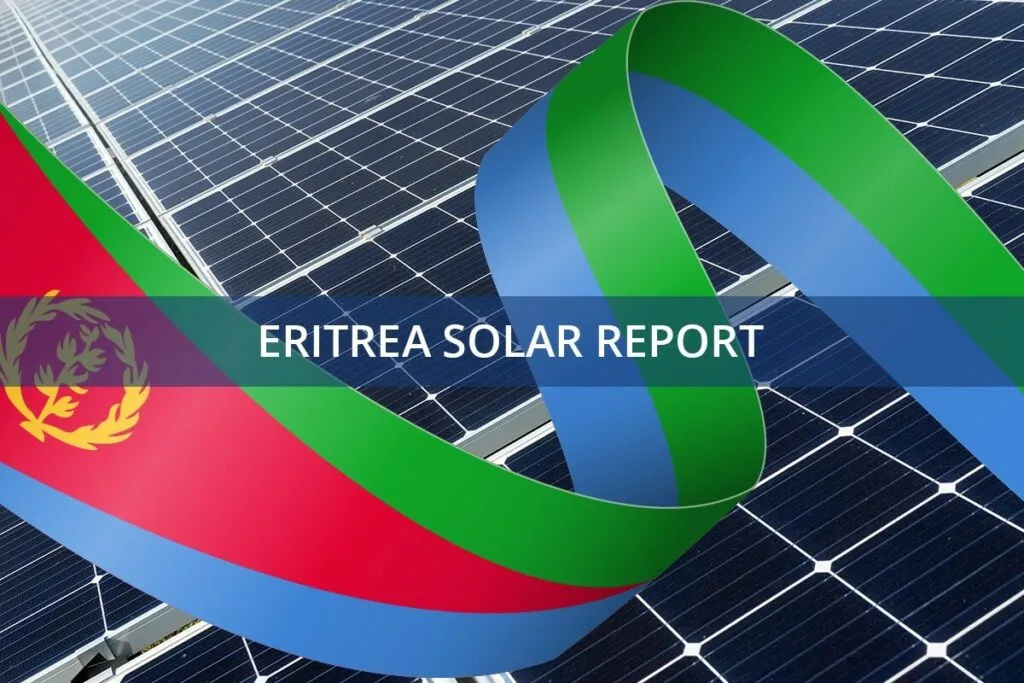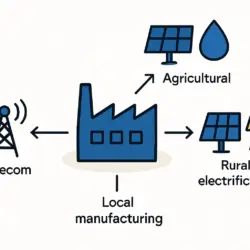Eritrea has launched a 6 MW mini-grid project to electrify 235 villages across the country. Supported by the United Nations Development Programme (UNDP), this initiative will significantly boost rural electrification and promote sustainable development.
Eritrea Mini-Grid Project to Boost Rural Electrification
Eritrea is embarking on a pivotal renewable energy project to bring power to 235 villages nationwide. As announced, the 6 MW initiative will use solar-powered mini-grids to supply electricity to rural regions.
Spearheaded by Eritrea’s Ministry of Energy and Mines, the project is backed by the UNDP with financial support from the Global Environment Facility (GEF). This comprehensive effort, one of Eritrea’s key development projects, aims to broaden electricity access in rural areas and foster sustainable growth.
The project is designed to deliver reliable, clean energy to villages currently without a connection to the national power grid. By harnessing solar power, it will reduce the country’s reliance on fossil fuels and help Eritrea achieve its renewable energy objectives.
Expanding Clean Energy Access Through Eritrea Mini-Grid Project
In recent years, Eritrea has been working to expand its use of renewable energy, setting ambitious targets to increase its green energy share and decrease greenhouse gas emissions.
Bolstered by a $19.5 million grant from the African Development Bank (AfDB), this new project will help advance Eritrea’s energy goals by providing clean electricity to rural populations. The initiative also includes an additional 3 MW of mini-grids in Kerekebet and Barentu, bringing the total new capacity to 12 MW, as detailed in the AfDB funding announcement.
The initiative is also expected to spur economic development by enabling villagers to use electricity for productive activities like agriculture, education, and small businesses. Access to electricity should improve living standards, create new income opportunities, and expand access to essential services like healthcare and education.
The UNDP highlights the project’s role in achieving the United Nations Sustainable Development Goals (SDGs), particularly SDG 7, which aims to ensure affordable, reliable, sustainable, and modern energy for all.
Eritrea Mini-Grid Project: A Model for Renewable Energy in Africa
The Eritrean government is committed to expanding renewable energy as part of its national development strategy and is leveraging its abundant solar resources to do so. The UNDP and GEF have collaborated closely with Eritrean authorities to design and implement the project, which will feature mini-grids with advanced solar technology and battery storage systems to ensure a reliable power supply.
This project is part of a wider UNDP initiative to champion renewable energy and sustainable development across Africa. Similar efforts are already underway in countries like Zambia, where solar mini-grids are bringing power to rural communities.
The success of these projects is crucial for meeting global climate targets and ensuring that Africa’s growing population has access to clean energy. For remote areas unconnected to the national grid, mini-grids offer an effective solution.
Solar-Powered Mini-Grids: A Game-Changer in the Eritrea Mini-Grid Project
Eritrea’s renewable energy project is poised to become a model for other African nations seeking to expand electricity access. By implementing solar-powered mini-grids, the country is demonstrating how renewable energy can be harnessed to improve lives and drive economic progress.
The project is also helping develop local expertise in renewable energy. Eritrean engineers and technicians are being trained to install and maintain the solar mini-grids, which creates new jobs and builds valuable skills in the energy sector.
The UNDP has lauded Eritrea’s commitment to renewable energy, noting the country’s significant progress toward its climate and development goals. As a cornerstone of this effort, the mini-grid project offers a sustainable solution to the challenge of rural electrification.
As Eritrea continues to expand its renewable energy infrastructure, it is positioning itself as a leader in Africa’s green energy transition. The project’s success will be watched closely by other nations as a sustainable model for achieving universal electricity access.


